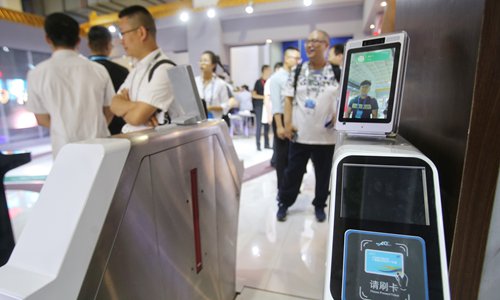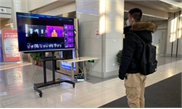
A Beijing subway station tests a facial recognition system on July 25. Photo: IC
Chinese companies have developed facial recognition technology that can identify people even when they are wearing a mask. Industry insiders said the technology can increase the efficiency of identifying people who are not wearing masks and there are minimal risks of privacy infringement thanks to tight regulation of big data.
The Chinese technology company Hanwang said earlier this month that it has successfully developed the technology and has deployed it in over 200 places. The news comes as people have been advised to wear masks to guard against the spread of the coronavirus. This can obstruct some facial recognition devices, which is a problem at companies where people need to show their faces to register their daily attendance.
However, the new technology has sparked some concerns over privacy infringement, as some Weibo users wrote that it will be too easy to collect and record the personal data of the general public, which may lead to risks of data leakage.
Yao Zhiqiang, co-founder of AI start-up CloudWalk told the Global Times that the collection of personal data is strictly restricted under China's law, even for collecting big data for machine learning.
"Usually a very restrictive contract will be signed to protect the privacy of the public," Yao said. "Even for data that is collected for test purposes, there must be a process of data masking, which will give out only fragmented data information that cannot be retrieved as valid facial data."
So far, the deployment of the combination of facial recognition and temperature check technology has remained in public places, including near the Beijing National Stadium, according to a report by stcn.com.
"For public places, the machine training process for mask wearers is roughly similar to the process for non-mask wearers," Zhou Tao, director of the Big Data Research Center at the University of Electronic Science and Technology told the Global Times, "but the applicable situations are far more limited. For now, the technology is not likely to add to the risks of illegal data collection."


